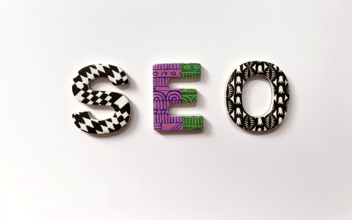According to a recent report by Failte Ireland, international travel demand was back at 2019 levels for Spring 2022 led by significant increases in UK and US markets. Overall inbound travel is estimated to reach 60-70% of 2019 levels in 2022, and even business travel demand is strengthening.
Improved air access to Ireland from Great Britain, Europe and North America is apparently also helping to drive search demand for hotel bookings. So are the changing patterns related to work - remote workers are a whole new guest type.
Given all of this context, it's important to remember what a huge part your booking engine has to play in your hotel's overall direct booking success - especially at a time when OTAs are competing ruthlessly for their share of bookings. Direct bookings are less expensive than other online channels.
Your booking engine has (or should have) the ability to gather tons of very interesting and useful data which can be used to improve your revenue strategy. Extracting this data and applying it to your future strategies is the smart thing to do. Your booking engine is the tool that allows your guests to search for availability and book directly via your hotel website. The more intuitive it is is, the more conversions you’ll get.
Your booking engine works for you via:
- Direct hotel website (desktop and mobile)
- Meta search platforms
- Social media sites that facilitate direct bookings
You should be able to gather handy guest information which you can use to connect with guests and encourage higher value, repeated conversions. Accessing information on demand patterns, lead time information, search patterns is a crucial benefit to the tool.
Learn more about Net Affinity's booking engine
As with every element of your business, your booking engine will work the hardest for you when it is integrated with your demand forecasting and sales strategy - this way you will be able to see how it can enhance forecasting performance and conversions.
Here are six ways to boost your hotel bookings using your booking engine data
1. Know when price and value affect bookings
One of the key factors affecting how customers choose hotels is knowing their price thresholds, and also knowing what’s valuable to them.
As hoteliers, you have to know when price plays a bigger part in converting than value. In some cases, price is king, and it’s the only factor in the mix. This is often true for many budget hotels.
However, at other times, what guests perceive as the value of the offer can be more important: uniqueness can trump price. Since the pandemic, guests' expectations have changed and often, their decision is about a lot more than price. They are looking for more of an experience, they're looking for the little extras you can offer them.
How do you decide exactly what your customers are interested in? What does ‘value’ mean to them?
Along with building solid customer personas, your booking engine can help. Look at which of your packages are the most popular, then look at their price points and anything additional you give within them. Find the common themes. Look at less popular options, too: are they too expensive for what they were offering for most people? Did they not offer enough for the price?
Price and value aren’t two mutually exclusive strategies—instead, combined, they will give you a more sustainable conversion strategy.
2. Look at rate plan lead times
Look beyond simple lead time conversion rates on your booking engine and dig deeper: examine the lead time of all of your rate plans.
Find out which rate plans convert the furthest in advance and what their common characteristics are. For example, have a look at which ones are:
- Multi-night offers
- Packages
- Discount stay and save rates
Knowing which types perform best will help you to convert more guests with more relevant offers.
If you discover that customers are more likely to convert based on value further in advance, work with that information instead of randomly running a sale or reducing rate.
Use your booking engine information to define the settings of your rate plans - find optimum days to set advanced purchase tariffs at, and discover whether there should be different advanced purchase for different times of the year.
3. Dig deeper and look at inventory type lead times
Review the lead time conversion rate of your various inventory types and use this information to determine distribution strategy of your most popular inventory types. This will maximise direct conversion rates.
For example, if single rooms convert highly on all your channels, consider offering more availability for them on your direct site and reducing availability on Booking.com.
Booking.com have expanded their loyalty programme
4. Geographical breakdown
Review your booking engine to give you a better understanding of the geographical characteristics of your key markets. For example, your booking engine can tell you the type of rate plans that people in different countries and regions book most often.
What do guests from different areas prefer?
You can set about targeting these potential guests with specific offers at specific times of the year.
All of this data gives a more holistic view of geographical customer behaviour—a big-picture view based on real data. Create specific content for different visitors to your site, and show them prices in their native currency or have a currency converter on-site before booking confirmation.
5. Demand insight
You should be using one or a combination of your PMS, Channel Manager and booking engine to review overall booking patterns. These are critical.
How can utilising automation help your hotel?
One of your booking engine’s key strengths in driving conversions is accurately tracking overall search patterns for future dates. Looking at forward demand is as key to good revenue management as historical data is. Revenue management is an essential part of your hotel’s conversion rate strategy so don’t neglect it. It will allow you to see where your property bookings are strong and where searches are high/bookings are low.
The real value is all in the level of detail. Don’t simply take the data at face value - analyse:
- Searche patterns for midweek and weekends
- Booking patterns for midweek and weekends
- Conversion rates for midweek and weekends
6. No availability data
Compare future demand and booking stats along with your no availability data.
If you can, try to also review this data for each individual day of the week. It may not be the most exciting thing, but this level of data mining gives you insight into key opportunities.
Looking at your no availability data in detail, examine the dates with high levels of no availability and check the number of bookings on your own site compared to other channels. Highlight the demand and conversion rate on this date, and do the math. With a little more availability on your own site, how many more direct bookings could you potentially have converted?
Using data to build confidence
The data in your booking engine data should be used to build confidence in your property.
Although your booking engine is just one piece of the puzzle, owever, it's a fairly chunky one. The data it provides should be a central part of your conversion strategy. It has the power to highlight guest patterns and should function as a strategic tool within your sales strategy.







